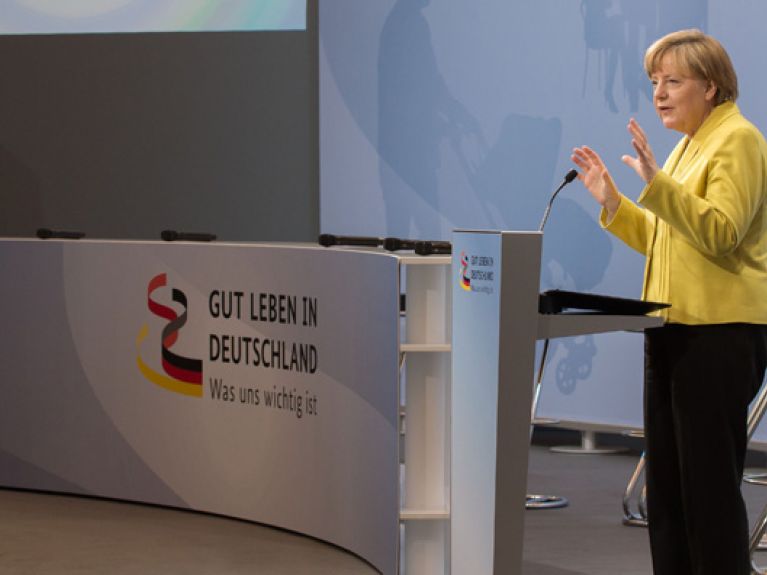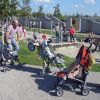Citizens’ Dialogue on “Living well in Germany”
The Federal Government would like to know what is important to Germans and is inviting people to discuss this. The results will lead to a national action programme.

The 31-year-old baker, Stefan Kranz says it is important “to have a job and be able to support a family.” Manuela Seeber, 46, is a forest ranger in Bavaria. She thinks “being able to combine family and profession” is important. She also values being close to nature in her personal life. When asked about quality of life, the first thing that other people think about includes mobility, education or good cultural activities.
And asking people is what the Federal Government aims to intensify in the coming weeks and months. What constitutes quality of life? “We want to join in conversation with you,” says Angela Merkel. So now, the Federal chancellor will be opening the Citizens’ Dialogue in Berlin on 1 June 2015. The government strategy “Living well in Germany – what is important to us” actually began in April 2015. But direct dialogue is at the core of the initiative. The Federal Government wants to join in direct exchanges with the citizens, so that it can orient its future policies more concretely on what the people feel is important.
Scientifically backed
The population can take part both online and at public meetings throughout Germany. The hosts are associations and foundations, churches and social organisations, economic organisations and trade unions, as well as federal ministries. One of these hosts and partners is Tom Beyer, member of the federal association of school students (BSK). He is encouraging people to make good use of the chance to join in direct dialogue. “Democracy isn’t a public service,” he says. “You have to get involved if you want to benefit from it.”
The nationwide dialogue process will be accompanied by a team of analysts surrounding Christoph M. Schmidt, Professor of Economic Policy Research and Applied Econometrics at the Ruhr University in Bochum and President of the Rheinisch-Westfälisch Institute for Economic Research in Essen. The results will help to shape the Federal Government’s National Action Plan.

